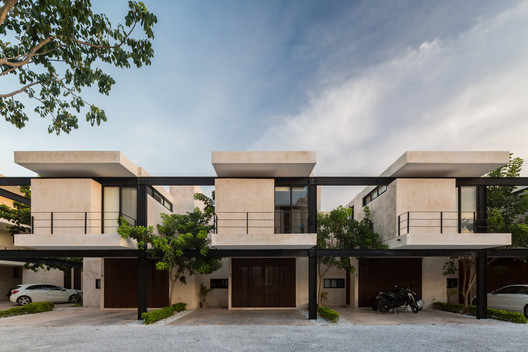
-
Architects: Lavalle + Peniche Arquitectos
- Area: 2136 m²
- Year: 2018
-
Photographs:Onnis Luque
-
Manufacturers: AutoDesk, Chaos Group, Autodesk Media and Entertainment, Comex, Helvex, Interceramic, Procon
-
Lead Architect: Luis Alejando Peniche Arroyo, José Carlos Lavalle Alonzo

Text description provided by the architects. Given the growing demand for people who move to Merida looking for a better quality of life, real estate developers have generated an excessive supply of developments that respond exclusively to financial needs and the needs of the market.








































